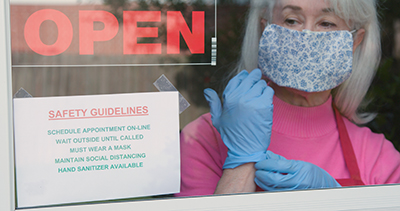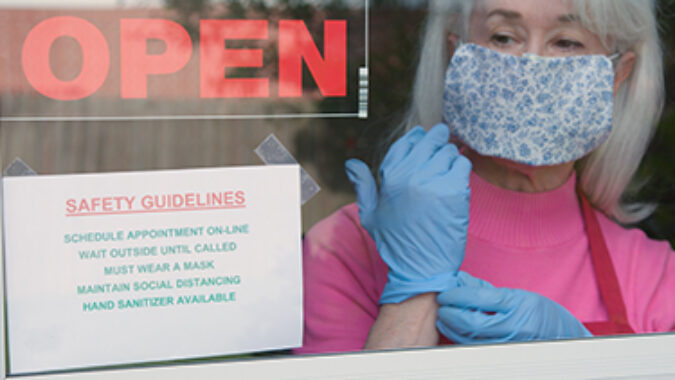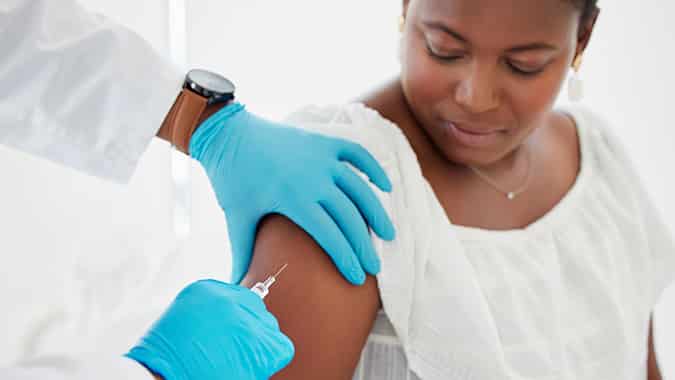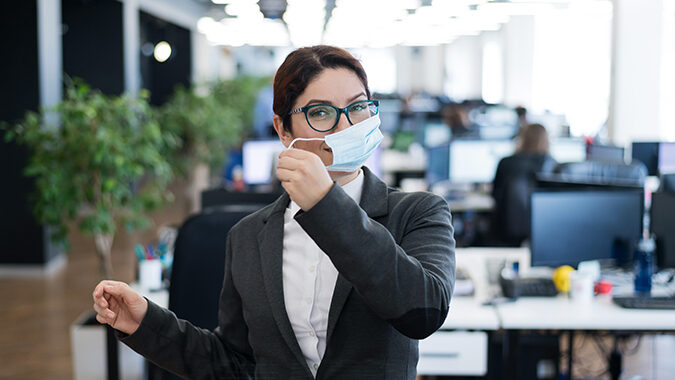 It is no secret that the government-mandated business closures and restrictions imposed over the past 10 months during the COVID-19 pandemic have ravaged the business community. The harsh reality is that these restrictions have caused permanent business closures, mass layoffs, record unemployment and significant revenue loss.
It is no secret that the government-mandated business closures and restrictions imposed over the past 10 months during the COVID-19 pandemic have ravaged the business community. The harsh reality is that these restrictions have caused permanent business closures, mass layoffs, record unemployment and significant revenue loss.
This morning, the New Jersey Business Coalition hosted a “State of New Jersey Business” virtual town hall, which allowed business owners and coalition members to directly discuss the current and future needs of the business community with more than a dozen legislators who also participated on the call.
“I can’t overemphasize enough the importance of hearing from the ‘boots on the ground,’” said NJBIA President and CEO Michele Siekerka, who moderated the event. “It is these great business owners and community leaders who make a difference each and every day in our local communities.”
The Need to Reopen
One of the biggest frustrations for small businesses throughout the pandemic has been the arbitrary nature of who is and who is not allowed to stay open, regardless of whether they follow recommended health department safety measures or not.
Jill Johnson, co-founder and CEO of the Institute for Entrepreneurial Leadership, pointed to the full parking lots at big box stores, that were never forced to shut down, as an example of how it is clearly possible for businesses to remain open and operate in a safe manner in the midst of the pandemic.
“It is possible to continue to live our lives and for business to be conducted even in this age of COVID. … In fact, our economy [requires it],” Johnson said. “Despite the challenges we face, small business owners continue to push forward against considerable odds, fighting every day for survival.”
Sarah Krom, managing partner at SKC & Co. CPAs, said, “New Jersey needs to create jobs and empower its business owners to operate without additional mandates, regulations or taxes that increase an already high cost of running a business in [the state]. If businesses are able to follow all of the required safety protocols, being allowed to open and operate as fully as possible is critical for them to rebuild the losses seen in 2020.”
Krom added that New Jersey employers who follow all the pandemic safety rules also need liability protection to operate successfully and without the fear of lawsuits in the future that could erode their business.
Grant Assistance and Access to Capital
With many main street businesses experiencing revenue losses as high as 70% to 80%, Bob Zuckerman, executive director, Downtown Westfield Corporation, said one thing these businesses are looking for is additional assistance money in the form of grants as opposed to loans.
Krom added that grants for businesses also need to become available at quicker speeds, and these grants should focus on the hardest hit industries, businesses and communities.
“We are looking for the grant and loan process to be simplified so that it does not become cumbersome just to get an answer about the status of your application,” Ralph Weaver, founding president and CEO of East West Connection, said, adding that the hard-hit travel, hospitality and meeting/planning industry’s biggest need is access to capital.
He added that the industry is also exploring how to invest in technology to help transform businesses in the meeting, travel and hospitality sphere to become more sustainable. However, coming up with proprietary technology solutions costs money.
“In this period in time, it is difficult to invest in your future when you don’t even know about your tomorrows,” Weaver said.
“The state should also provide resources for affordable personal protective equipment (PPE). Prices are continuing to skyrocket, and in some instances, you cannot even find what you need to operate,” Krom said.
She suggested the state consider extending the New Jersey Economic Development Authority (NJEDA) NJ Small and Micro Business PPE Access Program, which expired on Dec. 17. The program afforded small businesses significant discounts (up to 65%) on PPE.
Vaccine Prioritization for Manufacturing
While manufacturing was deemed an essential industry at the onset of the pandemic, Michael Womack, marketing outreach coordinator at NJMEP, said that not all manufacturing businesses have been included in New Jersey’s Phase 1B prioritization of vaccine distribution.
He said that New Jersey needs to dictate which essential industries will be prioritized with the vaccine, and the state must expand the current industries listed under the state plan.
“Manufacturing is a massive job market stimulator, and the state can help limit liability by including the industry in Phase 1B,” Womack said. “When discussing vaccine prioritization, all manufacturing has remained open. If an outbreak occurs, that piece of the supply chain shuts down, which will affect countless other businesses downstream.”
The Long Year Ahead
While grants and loans have been distributed across various industries, in most cases that support has lasted for a fraction of the length of the pandemic.
Racheal Fosu, Social Enterprise & GiveCareTech Founder and CEO, explains that the child care industry has received three months of government support over the past 10 months. She said that 42% of child care centers are still closed, and those that remain are on the brink of closure due to insufficient revenue.
“Revenues are down 50-60% and will not realistically begin to come back until September of this year,” Fosu explained, adding that the child care industry could see its closures increase by 20% in the coming year.
“Imagine the impact to the workforce with 60% of child care centers being unavailable,” she said. “We need money now. There is no time left. We need a single source for available ‘keep-the-door-open’ grants that is easy to apply for and has speedy disbursements through established channels.”




